A question: How broadly does God’s love extend to mankind, and what is the breadth of His goodness towards all?
- Again: Does God love everyone, both His elect and those that are not His elect?
- So, if He does not love those people that are not His elect, then how do we understand His purposes in providing good things, good provisions for life for all people?
- Is the breadth of God’s love and of God’s goodwill or His goodness the same in regards to mankind? How do we reconcile the intersection of God’s love for His Children and God’s goodwill toward all of mankind?
These big questions, these big topics of Christian doctrine have lead many people of faith to have strong differences of opinion. In pursuit of the answers to these questions a person eventually finds themselves seeking to understand the extent of the atoning work of Christ on the cross. These can be complex issues to understand, but it seems good to hold to the following Biblical principles…..
God loves His elect. Yet He is good to all in His provisions. He is carrying out His sovereign plan – His eternal decree.
God indeed is love, and God indeed is good. Amen!
****************
A. God’s Love for His Elect
1 John 4:8-10
(8) “The one who does not love does not know God, for God is love. (9) By this the love of God was manifested in us, that God has sent His only begotten Son into the world so that we might live through Him. (10) In this is love, not that we loved God, but that He loved us and sent His Son to be the propitiation for our sins.”
***************
In his book Concise Theology: A Guide to Historic Christian Beliefs (Tyndale House Publishers, Inc., Wheaton, Illinois – 1993), J. I. Packer discusses the Goodness of God (pages 45-47)…
“When John says “God is love” (1 John 4:8), what he means … is that the Father through Christ has actually saved us formerly lost sinners who now believe. “This is how God showed his love among us: He sent his one and only Son into the world that we might live through him. This is love: not that we loved God” — we didn’t — “but that he loved us and sent his Son as an atoning sacrifice for our sins (1 John 4:9-10).”
“As always in the New Testament, “us” as the objects and beneficiaries of redeeming love means “us who believe.” Neither here nor elsewhere does “we” or “us” refer to every individual belonging to the human race. New Testament teaching on redemption is particularistic throughout, and when “the world” is said to be loved and redeemed (John 3:16-17, 2 Corinthians 5:19, 1 John 2:2), the reference is to the great number of God’s elect scattered worldwide throughout the ungodly human community (cf. John 10:16; John 11:52-53), not to each and every person who did, does, or shall exist. If this were not so, John and Paul would be contradicting things that they say elsewhere.”
****************
John 3:16-17
(16) “For God so loved the world, that He gave His only begotten Son, that whoever believes in Him shall not perish, but have eternal life. (17) For God did not send the Son into the world to judge the world, but that the world might be saved through Him.”
—-
2 Corinthians 5:18-21
(18) “Now all these things are from God, who reconciled us to Himself through Christ and gave us the ministry of reconciliation, (19) namely, that God was in Christ reconciling the world to Himself, not counting their trespasses against them, and He has committed to us the word of reconciliation. (20) Therefore, we are ambassadors for Christ, as though God were making an appeal through us; we beg you on behalf of Christ, be reconciled to God. (21) He made Him who knew no sin to be sin on our behalf, so that we might become the righteousness of God in Him.”
—-
1 John 2:1-2
(1) “My little children, I am writing these things to you so that you may not sin. And if anyone sins, we have an Advocate with the Father, Jesus Christ the righteous; (2) and He Himself is the propitiation for our sins; and not for ours only, but also for those of the whole world.”
****************
B. God’s Goodness Toward All Mankind
J. I. Packer goes on to say….
“This sovereign redemptive love is one facet of the quality that Scripture calls God’s goodness (Psalms 100:5; Mark 10:18), that is, the glorious kindness and generosity that touches all his creatures (Psalms 145:9, 15-16) and that ought to lead all sinners to repentance (Romans 2:4). Other aspects of this goodness are the mercy or compassion or pity that shows kindness to persons in distress by rescuing them out of trouble (Psalm 107; Psalm 136) and the long-suffering, forbearance, and slowness to anger that continues to show kindness toward persons who have persisted in sinning (Exodus 34:6; Psalms 78:38; John 3:10-4:11; Romans 9:22; 2 Peter 3:9). The supreme expression of God’s goodness is still, however, the amazing grace and inexpressible love that shows kindness by saving sinners who deserve only condemnation: saving them, moreover, at the tremendous cost of Christ’s death on Calvary (Romans 3:22-24; 5:5-8; 8:32-39; Ephesians 2:1-10; 3:14-18; 5:25-27).”
****************
Psalm 100:5
(5) For the LORD is good;
His lovingkindness is everlasting
And His faithfulness to all generations.
—-
Psalm 145:9-16
(9) The LORD is good to all,
And His mercies are over all His works.
(10) All Your works shall give thanks to You, O LORD,
And Your godly ones shall bless You.
(11) They shall speak of the glory of Your kingdom
And talk of Your power;
(12) To make known to the sons of men Your mighty acts
And the glory of the majesty of Your kingdom.
(13) Your kingdom is an everlasting kingdom,
And Your dominion endures throughout all generations.
(14) The LORD sustains all who fall
And raises up all who are bowed down.
(15) The eyes of all look to You,
And You give them their food in due time.
(16) You open Your hand
And satisfy the desire of every living thing.
—-
Romans 9:22-23
(22) “What if God, although willing to demonstrate His wrath and to make His power known, endured with much patience vessels of wrath prepared for destruction? (23) And He did so to make known the riches of His glory upon vessels of mercy, which He prepared beforehand for glory, (24) even us, whom He also called, not from among Jews only, but also from among Gentiles.”
—-
2 Peter 3:3-10
(3) “Know this first of all, that in the last days mockers will come with their mocking, following after their own lusts, (4) and saying, “Where is the promise of His coming? For ever since the fathers fell asleep, all continues just as it was from the beginning of creation.” (5) For when they maintain this, it escapes their notice that by the word of God the heavens existed long ago and the earth was formed out of water and by water, (6) through which the world at that time was destroyed, being flooded with water. (7) But by His word the present heavens and earth are being reserved for fire, kept for the day of judgment and destruction of ungodly men. (8) But do not let this one fact escape your notice, beloved, that with the Lord one day is like a thousand years, and a thousand years like one day.”
(9)”The Lord is not slow about His promise, as some count slowness, but is patient toward you, not wishing for any to perish but for all to come to repentance. (10) But the day of the Lord will come like a thief, in which the heavens will pass away with a roar and the elements will be destroyed with intense heat, and the earth and its works will be burned up.”
***************
C. God’s Faithful Goodness to Us Inspite of Our Sin and Failures
Packer goes on further to state……
“God’s faithfulness to his purposes, promises, and people is a further aspect of his goodness and praiseworthiness. Humans lie and break their word; God does neither. In the worst of times it can still be said: “His compassions never fail. …. Great is your faithfulness” (Lamentations 3:22-24; Psalms 36:5; cf. Psalm 89, especially verses 1-2, 14, 24, 33, 37, 49). Though God’s ways of expressing his faithfulness are sometimes unexpected and bewildering, looking indeed to the casual observer like unfaithfulness, the final testimony of those who walk with God through life’s ups and downs is that “every promise has been fulfilled; not one of them has failed” (Joshua 23:14-15). God’s fidelity, along with the other aspects of his gracious goodness as set forth in his Word, is always solid ground on with to rest our faith and hope.”
***************
Joshua 23:14-15
(14) “Now behold, today I am going the way of all the earth, and you know in all your hearts and in all your souls that not one word of all the good words which the LORD your God spoke concerning you has failed; all have been fulfilled for you, not one of them has failed. (15) It shall come about that just as all the good words which the LORD your God spoke to you have come upon you, so the LORD will bring upon you all the threats, until He has destroyed you from off this good land which the LORD your God has given you.”
****************




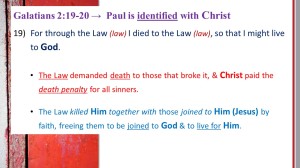


























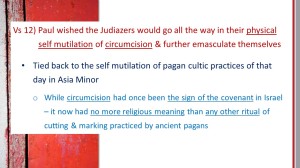

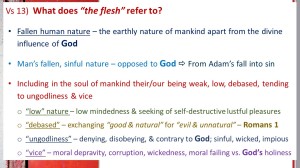

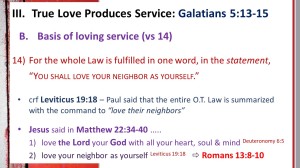




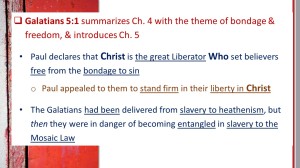

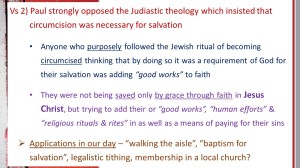
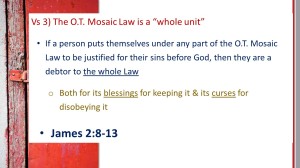

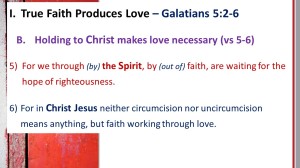
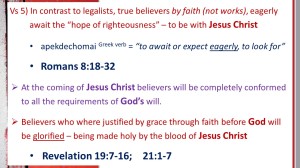

 Manaslu (also known as Kutang) is the eighth highest mountain in the world, part of the Nepalese Himalayas. Its name, which means “Mountain of the Spirit”, comes from the Sanskrit word Manasa, meaning “intellect” or “soul”. Manaslu is 8,156 metres (26,759 ft) above mean sea level (source:
Manaslu (also known as Kutang) is the eighth highest mountain in the world, part of the Nepalese Himalayas. Its name, which means “Mountain of the Spirit”, comes from the Sanskrit word Manasa, meaning “intellect” or “soul”. Manaslu is 8,156 metres (26,759 ft) above mean sea level (source:  Approaching the Manaslu Mountain Summit
Approaching the Manaslu Mountain Summit Mount Manaslu
Mount Manaslu Mount Manaslu
Mount Manaslu









